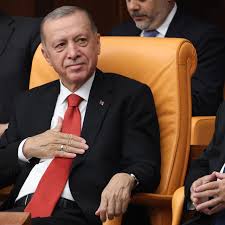Erdogan’s new five-year term gives him the freedom to continue his more autocratic tactics, which have polarized the NATO member nation and boosted its status as a regional military might.
Erdogan will officially begin his second term on Saturday at roughly 3 p.m. (1200 GMT) in the general assembly in Ankara after the new parliament convened on Friday.
Erdogan, Turkey’s longest-serving leader, exceeded expectations and won 52.2% of the vote in the runoff election on May 28 while dealing with a difficult cost-of-living problem that was thought to have hurt his chances.
His electoral success demonstrated his capacity to overcome challenges and connect with a sizeable percentage of the people.
Numerous foreign leaders are in Ankara to witness President Erdogan’s inauguration, including Prime Minister Shehbaz Sharif, President Ersin Tatar of the Turkish Republic of Northern Cyprus, President Nicolas Maduro of Venezuela, and President Vjosa Osmani of Kosovo.
High-ranking representatives from 78 nations and international organizations will attend a ceremony at the presidential palace after that, according to state-run Anadolu Agency. Those in attendance will include NATO Secretary-General Jens Stoltenberg, Venezuelan President Nicolas Maduro, Hungarian Prime Minister Viktor Orban, and Armenian Prime Minister Nikol Pashinyan.
Erdogan is scheduled to appoint ministers later this evening. According to a report earlier this week, he was very expected to include the former head of the economy, Mehmet Simsek, in his new cabinet. This would indicate a potential return to more conventional economic policies, including prospective interest rate increases.
When Simsek was deputy prime minister and finance minister from 2009 to 2018, investors held him in high respect.
His current pivotal role could signal a change from decades of policy that was supported by low interest rates despite high inflation and strict state control of the markets.










